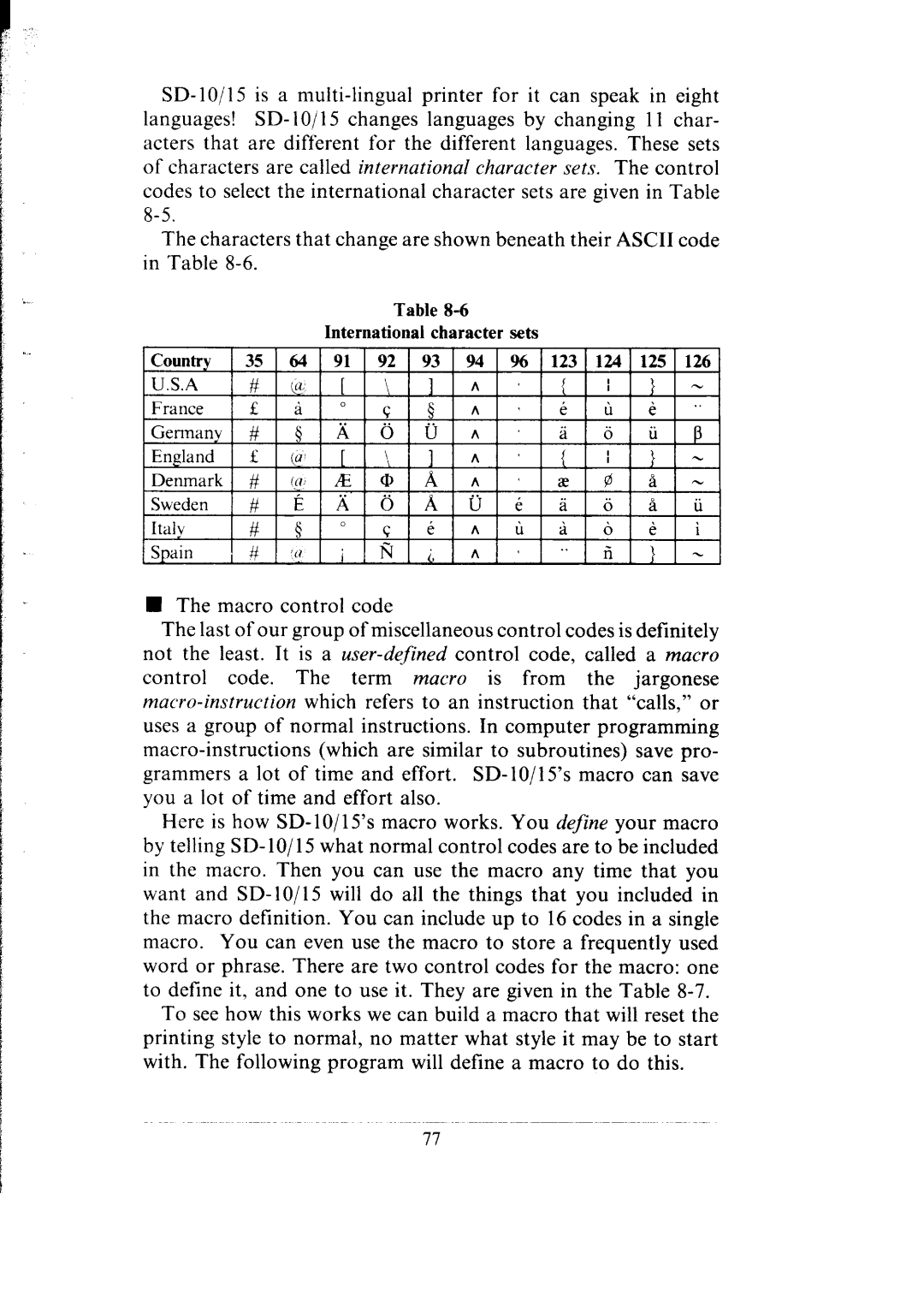
SD-10/l 5 is a multi-lingual printer for it can speak in eight languages! SD- 10/l 5 changes languages by changing 11 char- acters that are different for the different languages. These sets of characters are called international character sets. The control codes to select the international character sets are given in Table 8-5.
The characters that change are shown beneath their ASCII code in Table 8-6.
Table 8-6
International character sets
Country | 1 35 | 1 64 | 91 | 92 | 93 | 94 | % | 123 124 | 125 | 126 |
U.S.A | 1 # | 1 g | ( | \ | 1 | h | - | I | I | _- |
Snain I # I ‘0
nThe macro control code
The last of our group of miscellaneous control codes is definitely not the least. It is a user-definedcontrol code, called a macro
control code. The term WZUCYOis from the jargonese macro-instructionwhich refers to an instruction that “calls,” or uses a group of normal instructions. In computer programming
macro-instructions (which are similar to subroutines) save pro- grammers a lot of time and effort. SD- 10/l 5’s macro can save you a lot of time and effort also.
Here is how SD-lo/l 5’s macro works. You define your macro by telling SD- lo/ 15 what normal control codes are to be included in the macro. Then you can use the macro any time that you want and SD-lo/l5 will do all the things that you included in the macro definition. You can include up to 16 codes in a single macro. You can even use the macro to store a frequently used word or phrase. There are two control codes for the macro: one to define it, and one to use it. They are given in the Table 8-7.
To see how this works we can build a macro that will reset the printing style to normal, no matter what style it may be to start with. The following program will define a macro to do this.

